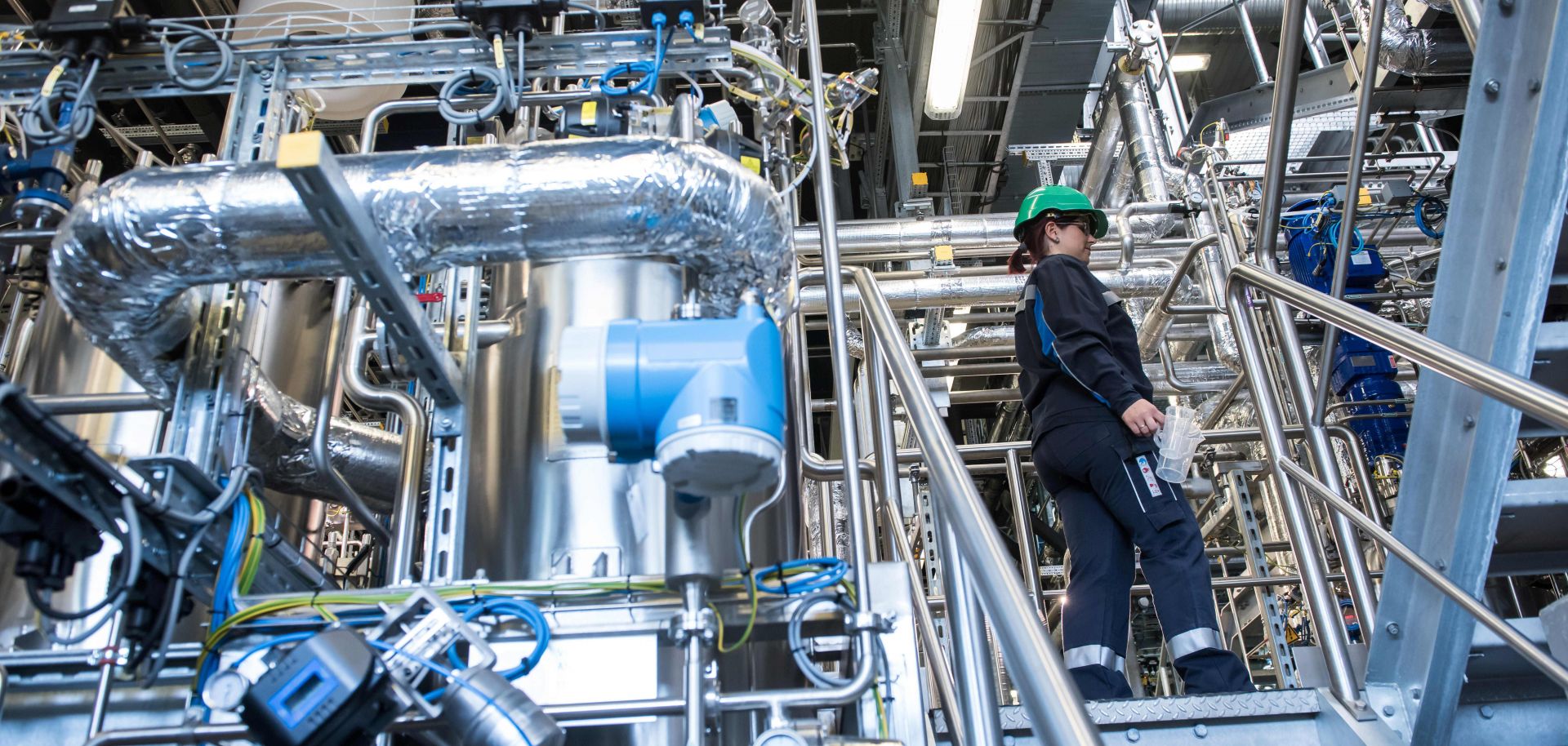ASSESSMENTS
New Gene-Editing Techniques Are Reshaping the Ethics of Biotechnology
Nov 2, 2018 | 10:00 GMT

Biotechnology engineer Jenny Pietzsch walks through a demo plant of the French company Global Bioenergies during its inauguration ceremony in Leuna, Germany, on May 11, 2017. Global Bioenergies is producing isobutylene, a hydrocarbon gas made from organic resources, sugar and genetically modified bacteria.
(JENS-ULRICH KOCH/AFP/Getty Images)
Highlights
- The European Union's rigorous definition of genetic editing will limit the benefits that the Continent sees from the application of the technology to agriculture.
- In the United States, strict rules on embryonic research will cause it to fall behind other countries when it comes to applying the techniques to genetic medical disorders.
- China will continue to push against Western ethical norms on multiple international fronts, and the use of biotechnology will be no different.
Subscribe Now
SubscribeAlready have an account?
